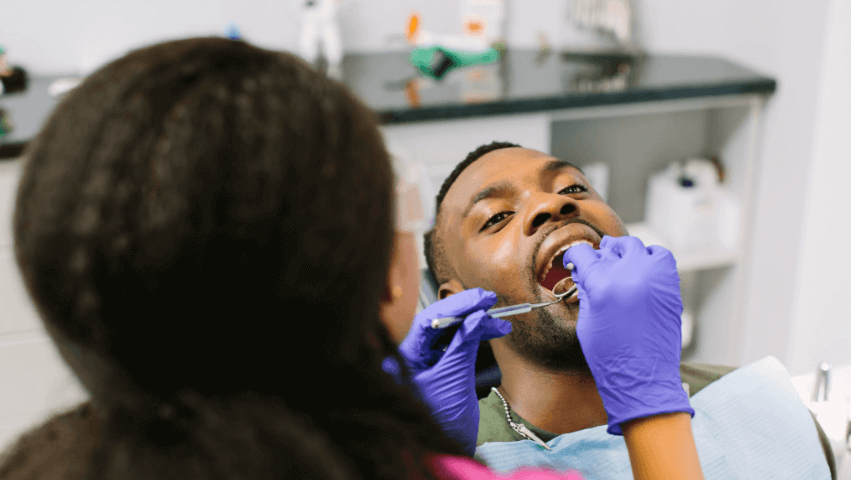The Link Between Poor Oral Hygiene and Gingivitis
&srotate=0)
Gingivitis and gum disease are prevalent concerns that often stem from a common source: poor oral hygiene. At Premier Periodontics in Bellevue, WA and surrounding areas, our team frequently encounters patients unaware of how their daily oral care habits directly influence their risk for these conditions. We're here to teach you how inadequate oral hygiene can lead to gingivitis, offering insights into prevention methods and more. Understanding this connection is essential for safeguarding not only your oral health but also your overall well-being.
What are the signs of gingivitis, and why is it a red flag?
Gingivitis, the early stage of periodontal (gum) disease, manifests through several telltale signs, each serving as a red flag for your oral health, including:
- Swollen, tender gums that may appear redder than usual
- Gums that bleed easily when you brush or floss
- Bad breath that doesn't go away
- Receding gums, making the teeth look longer
- A change in the way your teeth fit together when you bite
Recognizing these signs of gingivitis is vital because they signal the onset of gum disease — a condition that can lead to more severe complications, including tooth loss and systemic health issues if left untreated. Early detection and intervention can halt the progression and even reverse the damage.
How does neglecting oral hygiene escalate into gingivitis and gum disease?
Poor oral hygiene is the primary driver behind the development of gingivitis and more advanced gum disease. Failing to regularly brush and floss allows plaque — a sticky film of food debris and bacteria — to accumulate along and under the gumline. If not removed, plaque hardens into tartar, exacerbating gum irritation and paving the way for gum disease. Our team of specialists emphasizes the importance of removing these deposits to restore gum health.
Are there lifestyle factors that heighten the risk of gingivitis and gum disease?
Yes, lifestyle choices significantly influence the risk of developing gingivitis and gum disease. Smoking, poor nutrition, and inadequate oral care routines contribute to the conditions' severity and progression. Furthermore, stress and certain medications can negatively affect gum health, making diligent oral hygiene and regular dental checkups even more critical.
What gingivitis treatment options are available?
Gingivitis treatment primarily focuses on thorough plaque and tartar removal, a process known as scaling and root planing. At Premier Periodontics in Bellevue, WA and surrounding areas such as Redmond, Seattle, Everett, and Kirkland, we offer comprehensive gingivitis treatment plans tailored to each patient's specific needs, including scaling and root planing, patient education on effective brushing and flossing techniques, and, if necessary, more advanced periodontal treatments to address extensive gum damage.
How can you prevent gingivitis and ensure healthy gums?
Preventing gingivitis and maintaining healthy gums are achievable goals with the right approach to oral care. Key preventive measures include:
- Regular brushing with fluoride toothpaste and flossing to remove plaque
- Routine dental checkups and cleanings to catch early signs of gingivitis
- Adopting a healthy lifestyle, including a balanced diet and quitting smoking
Take control of your gum health
At Premier Periodontics in Everett, Kirkland, Mercer Island, Olympia, Redmond, Bellevue, and Seattle, WA, we are dedicated to helping you achieve optimal oral health and prevent the onset of gingivitis and gum disease. Recognizing the signs of gingivitis and seeking prompt gingivitis treatment can make a significant difference in your oral and overall health. If you're experiencing any symptoms or simply wish to maintain healthy gums, we invite you to schedule a visit at any one of our locations in or around Bellevue, WA. Let's work together to keep your smile bright, healthy, and free from gum disease.